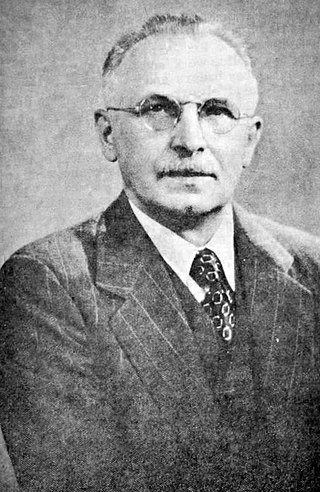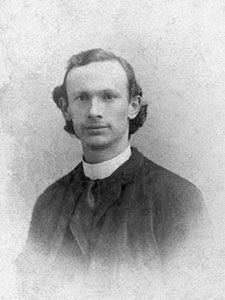Anarcho-syndicalism is an anarchist organisational model that centres trade unions as a vehicle for class conflict. Drawing from the theory of libertarian socialism and the practice of syndicalism, anarcho-syndicalism sees trade unions as both a means to achieve immediate improvements to working conditions and to build towards a social revolution in the form of a general strike, with the ultimate aim of abolishing the state and capitalism. Anarcho-syndicalists consider trade unions to be the prefiguration of a post-capitalist society and seek to use them in order to establish workers' control of production and distribution. An anti-political ideology, anarcho-syndicalism rejects political parties and participation in parliamentary politics, considering them to be a corrupting influence on the labour movement. In order to achieve their material and economic goals, anarcho-syndicalists instead practice direct action in the form of strike actions, boycotts and sabotage. Anarcho-syndicalists also attempt to build solidarity among the working class, in order to unite workers against the exploitation of labour and build workers' self-management.
The International Workers' Association – Asociación Internacional de los Trabajadores (IWA–AIT) is an international federation of anarcho-syndicalist labor unions and initiatives.

Grigorii Petrovich Maksimov was a Russian anarcho-syndicalist. From the first days of the Russian Revolution, he played a leading role in the country's syndicalist movement – editing the newspaper Golos Truda and organising the formation of factory committees. Following the October Revolution, he came into conflict with the Bolsheviks, who he fiercely criticised for their authoritarian and centralist tendencies. For his anti-Bolshevik activities, he was eventually arrested and imprisoned, before finally being deported from the country. In exile, he continued to lead the anarcho-syndicalist movement, spearheading the establishment of the International Workers' Association (IWA), of which he was a member until his death.

The Central Organisation of Swedish Workers is a Swedish syndicalist trade union federation. The SAC organises people from all occupations and industries in one single federation, including the unemployed, students, and the retired. The SAC also publishes the weekly newspaper Arbetaren, owns the publishing house Federativ and ran the unemployment fund Sveriges Arbetares Arbetslöshetskassa (SAAK).

The Socialist Alternative Politics is a Trotskyist political group in the Netherlands without parliamentary representation.

The Revolutionary Socialist Party was a Dutch socialist political party, that has been variously characterized as Trotskyist and syndicalist. In 1935 it merged with the Independent Socialist Party (OSP) to form the Revolutionary Socialist Workers' Party, but most of the former OSP members left the united party the same year. Henk Sneevliet was the RSP/RSAP's undisputed leader throughout its existence, as well as its only Representative.

The Italian Syndicalist Union is an Italian anarcho-syndicalist trade union. Established in 1912 by a confederation of "houses of labour", the USI led a series of general strikes throughout its early years, culminating with the Red Week insurrection against the Italian entry into World War I. During the Biennio Rosso, the USI was at the forefront of the occupation of factories, which saw hundreds of workplaces throughout the country brought under the control of workers' councils. The USI also led the establishment of the International Workers' Association (IWA), which became the main international organisation of anarcho-syndicalist trade unions.

The Socialist Party, also called the "Kolthek party" after its founder Harm Kolthek, was a Dutch revolutionary syndicalist political party. It was represented in Parliament between 1918 and 1922.

The Norwegian Syndicalist Federation is an anarcho-syndicalist group in Norway. Established in the 1910s, the NSF worked within existing Norwegian trade unions in order to radicalise them towards revolutionary syndicalism. It was a founding member of the International Workers' Association (IWA) and historically maintained close connections with the Central Organisation of Swedish Workers (SAC). The NSF was politically repressed during the German occupation of Norway and, in the wake of World War II, experienced a dramatic decline. In the 1970s, the organisation was reconstituted as a propaganda group and continued its activities into the 21st century, with a much smaller membership.

The National Labor Secretariat was a trade union federation in the Netherlands from 1893 to 1940.

Christiaan Gerardus Cornelissen (1864–1942) was a Dutch journalist and economist, and one of the leading figures of syndicalism in the Netherlands.

The First International Syndicalist Congress was a meeting of European and Latin American syndicalist organizations at Holborn Town Hall in London from 27 September to 2 October 1913. Upon a proposal by the Dutch National Labour Secretariat (NAS) and the British Industrial Syndicalist Education League (ISEL), most European syndicalist groups, both trade unions and advocacy groups, agreed to congregate at a meeting in London. The only exception was the biggest syndicalist organization worldwide, the French General Confederation of Labour (CGT). Nevertheless, the congress was held with organizations from twelve countries participating. It was marked by heated debate and constant disagreements over both tactics and principles. Yet, it succeeded in creating the International Syndicalist Information Bureau as a vehicle of exchange and solidarity between the various organizations and the Bulletin international du mouvement syndicaliste as a means of communication. It would be viewed as a success by almost all who participated.

Pierre Besnard was a French anarcho-syndicalist. He was the co-founder and leader of the Confédération Générale du Travail-Syndicaliste Révolutionnaire (CGT-SR) and its successor the Confédération Nationale du Travail (CNT), and the principal theoretician of anarcho-syndicalism in France during the early 20th century.

Harm Kolthek Jr. (1872-1946) was a Dutch printer, journalist, trade unionist and libertarian socialist politician. Kolthek led the syndicalist federation of trade unions, the National Labor Secretariat (NAS), from 1907 to 1913. He later founded and led the Socialist Party, sometimes called the "Kolthek party" after its founder, and served in the Netherlands House of Representatives for this party from 1918 to 1922.

Anton Levien Constandse was a Dutch anarchist author and journalist.
Anarchism in the Netherlands originated in the second half of the 19th century. Its roots lay in the radical and revolutionary ideologies of the labor movement, in anti-authoritarian socialism, the free thinkers and in numerous associations and organizations striving for a libertarian form of society. During the First World War, individuals and groups of syndicalists and anarchists of various currents worked together for conscientious objection and against government policies. The common resistance was directed against imperialism and militarism.

Anarchism in Indonesia has its roots in the anti-colonial struggle against the Dutch Empire. It became an organized movement at the behest of Chinese anarchist immigrants, who played a key part in the development of the workers' movement in the country. The anarchist movement was suppressed, first by the Japanese occupation of the Dutch East Indies, then by the successive regimes of Sukarno and Suharto, before finally re-emerging in the 1990s.
Anarchism in Austria first developed from the anarchist segments of the International Workingmen's Association (IWA), eventually growing into a nationwide anarcho-syndicalist movement that reached its height during the 1920s. Following the institution of fascism in Austria and the subsequent war, the anarchist movement was slow to recover, eventually reconstituting anarcho-syndicalism by the 1990s.

Helmut Rüdiger (1903–1966) was a German-Swedish journalist and anarcho-syndicalist activist. Born in Saxony, he became involved with the anarchist movement after the German Revolution of 1918–1919, becoming a leading member of the Free Workers' Union of Germany (FAUD). During the 1930s, he moved to Spain, where he participated in the Spanish Revolution of 1936. After the defeat of the Republicans in the Spanish Civil War, he fled to Sweden, where he became a leading member of the Central Organisation of the Workers of Sweden and an influential figure in the "revisionist" tendency of anarcho-syndicalism. He died in Spain in 1966, while trying to make contact with members of the anarchist underground.
The history of anarcho-syndicalism dates back to the anti-authoritarian faction of the International Workingmen's Association. Revolutionary syndicalism as a tendency was constituted in the 1890s by the French General Confederation of Labour (CGT), which became a model union for other syndicalist organisations to base themselves on. Anarchists were involved in the syndicalist movement from the outset and a specific anarchist tendency developed within the movement over the subsequent decades.













